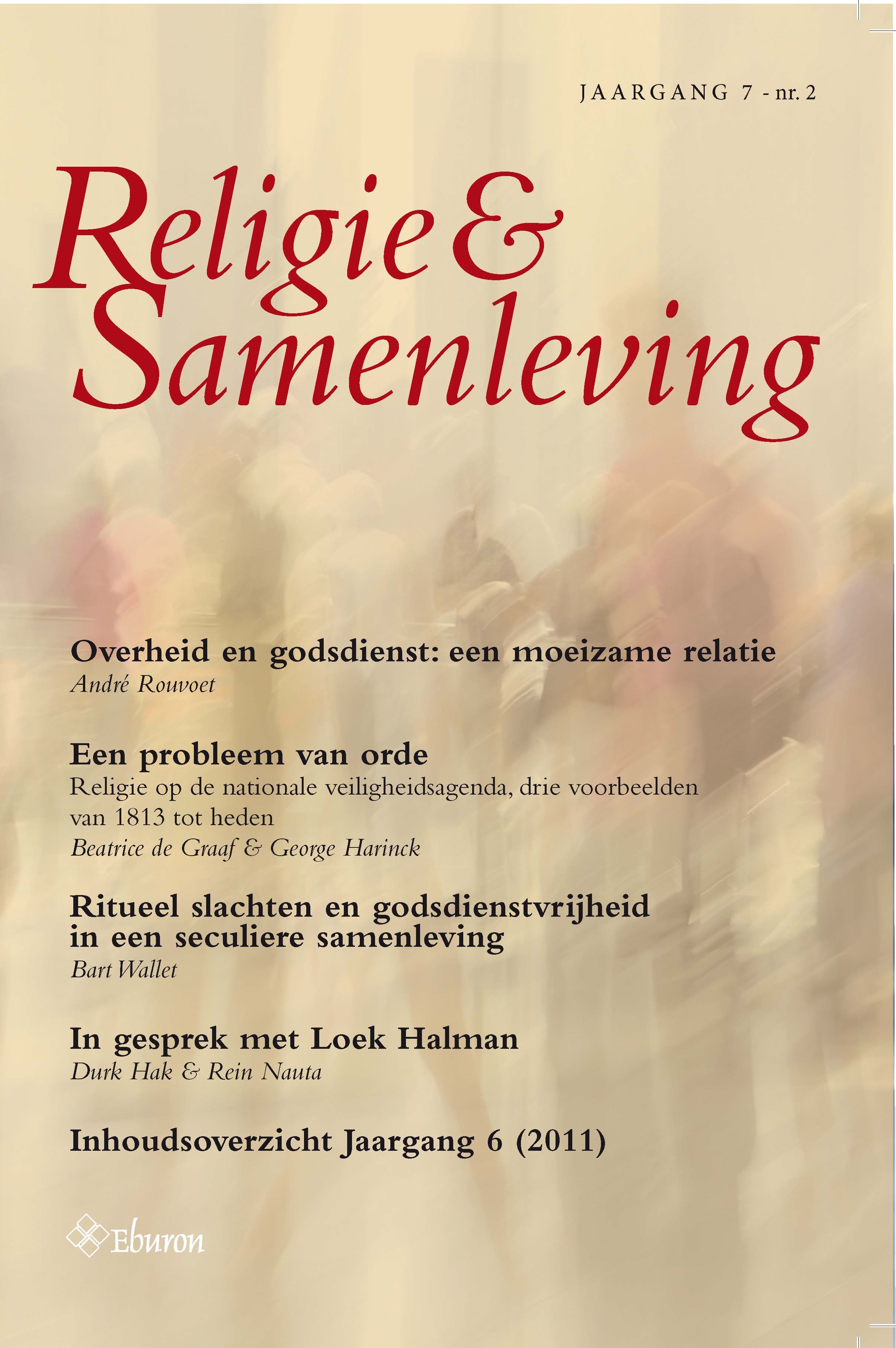Ritueel slachten en godsdienstvrijheid in een seculiere samenleving
DOI:
https://doi.org/10.54195/RS.12967Samenvatting
For centuries ritual slaughter had a stable and legitimate place in Dutch society. It was one of the religious rites of the Jewish minority and thus accepted. From the nineteenth century onwards, however, criticism was voiced by animal rights activists, anti-religious organizations and anti-Semites. This criticism – with the exception of the war period – remained until recently marginal. Only in the last decade also mainstream political parties became critical. This essay demonstrates that political changes in the wake of ’9/11’ and the ‘Fortuyn revolt’ led to a new articulation of Dutch identity, which was essentially secular. Religious rites such as Jewish and Islamic ritual slaughter consequently were framed in opposition to the newly expressed Dutch identity. An analysis of the argumentation in the recent political and public debates demonstrates both the continuity with nineteenth-century progressive reasoning, and the impact of recent political changes.




